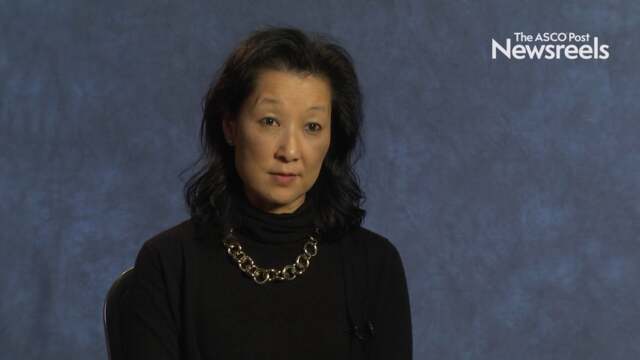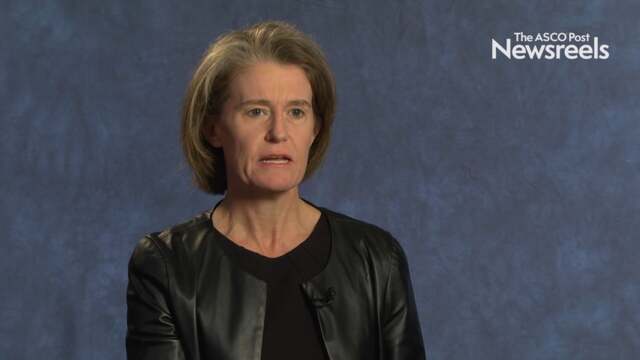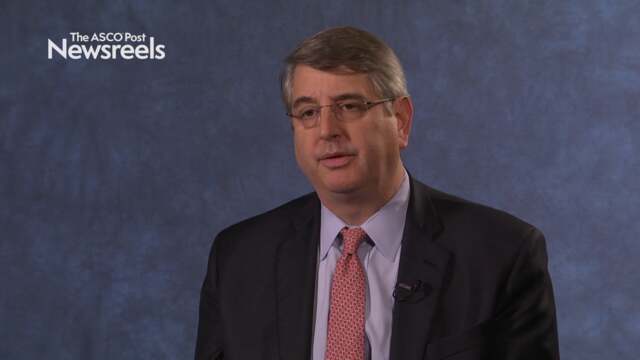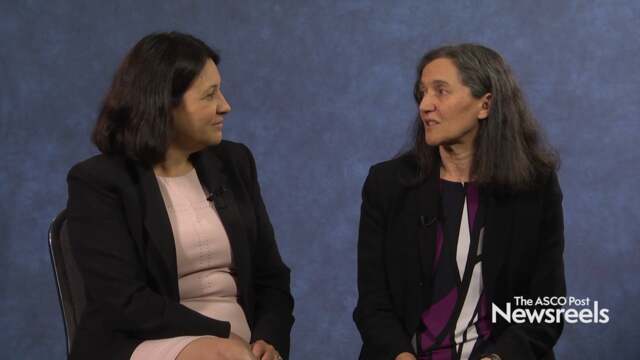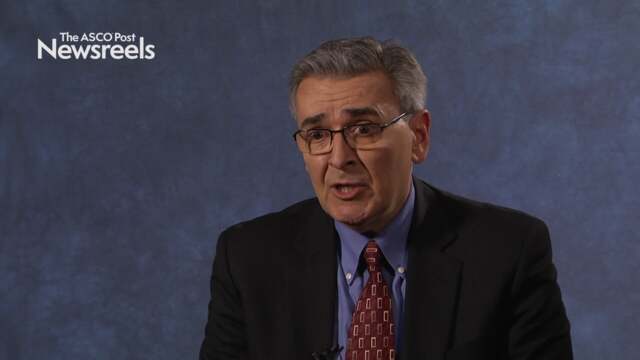Melinda Telli, MD, on Triple-Negative Breast Cancer: New Clinical Approaches
2017 San Antonio Breast Cancer Symposium
Melinda Telli, MD, of the Stanford University School of Medicine, discusses the current status of treatment for advanced TNBC, and new therapeutic strategies now being used for better outcomes.
Eun-Sil Shelley Hwang, MD, of Duke University Medical Center, discusses study findings on primary endocrine therapy for estrogen receptor–positive ductal carcinoma in situ (Abstract GS5-05).
Elizabeth A. Mittendorf, MD, PhD, of The University of Texas MD Anderson Cancer Center, discusses the growing role of immunotherapy in treating breast disease, the evidence of biomarkers that may be associated with response to therapy, and the opportunities to perform robust correlative studies.
Harold J. Burstein, MD, PhD, of the Dana-Farber Cancer Institute, discusses study findings on a comparison of adjuvant tamoxifen plus ovarian function suppression vs tamoxifen in premenopausal women with hormone receptor–positive breast cancer (Abstract GS4-03).
Vered Stearns, MD, of Johns Hopkins University, and Prudence A. Francis, MD, of the Peter MacCallum Cancer Centre, discuss two key topics in adjuvant treatment: endocrine therapy for premenopausal women with ER+ breast cancer and finding the optimal duration of treatment.
Joseph A. Sparano, MD, of Montefiore Medical Center/Albert Einstein College of Medicine, discusses findings that suggest circulating tumor cells 5 years after diagnosis are prognostic for late recurrence in operable stage II–III breast cancer (Abstract GS6-03).
